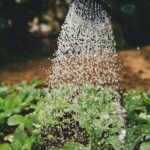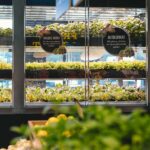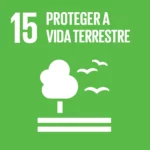
New app connects farmers and consumers around food sustainability
Through the app, the aim is to promote dietary diversification and increase awareness of cultivating and consuming more underutilized crops, such as legumes, cereals, and
We didn't find any happenings mapped to your criteria.
Try the traditional search to find articles not yet mapped with RUA.
We didn't find any happenings mapped to your criteria.
Try the traditional search to find articles not yet mapped with RUA.
We didn't find any happenings mapped to your criteria.
Try the traditional search to find articles not yet mapped with RUA.
We didn't find any happenings mapped to your criteria.
Try the traditional search to find articles not yet mapped with RUA.
The project focuses on information and research for more sustainable solutions for agriculture, in areas such as pesticides and water and soil protection.
Smart Farm Hub is the name of the digital project launched by the National Plant Protection Industry Association (ANIPLA) that helps prepare the agricultural sector for climate change by increasing crop yields in a safe and sustainable manner.
Through this digital tool, farmers, consumers, trainers, industrialists, and traders can freely access information on practices that make agriculture more sustainable, such as how to handle pesticides in a sustainable way, how to protect water quality by treating effluents from agricultural activity, or how producers can integrate ecology into their practice, promoting biodiversity and the environment.
The cooperation between several entities related to plant protection is the basis of this initiative developed in collaboration with Croplife (ANIPLA’s European counterpart). In addition to climate challenges, such as droughts and floods, the goal is also to meet the requirements of the European Ecological Pact by creating a space for dialogue, sharing, and reflection on what modern agriculture is and how it is practiced.
Thus, the Smart Farm Hub wants to generate synergies that promote joint work plans, namely in the study of the effect of climate change, research and development of biopesticides, biotechnology, soil conservation, and digital and precision agriculture.
To this end, 4 cooperation protocols were signed with CIB – Biotechnology Research Center, InnovPlantProtect, Aposolo – Portuguese Association for Soil Conservation Mobilization and the Smart Farm Colab laboratory.
“It is urgent to put innovation, technology and science at the service of agriculture, which will allow our professionals to perform work that is sustainable, in tune with the environment, and that meets the food needs of the entire population.” declares João Cardoso, Executive Director of ANIPLA, during the presentation.
According to the leader, biodiversity can be stimulated through the practice of cover crops and the creation of insect shelters, aquatic shelters (for the protection of amphibians), and bird nests, with the aim of attracting animals that have a beneficial effect in combating plant pests and diseases.


Through the app, the aim is to promote dietary diversification and increase awareness of cultivating and consuming more underutilized crops, such as legumes, cereals, and

Led by the Polytechnic Institute of Coimbra, the AGROvila project aims to promote and shorten circuits with the support of a national digital platform accessible

SweGreen’s farming solution eliminates the use of synthetic chemicals, reduces water consumption by 99% and eliminates the transportation phase. SweGreen is a Swedish startup that

This article addresses an action that promotes the protection, restoration and sustainable use of terrestrial ecosystems, sustainably manage forests, combat desertification, droughts and floods, halt and reverse land degradation, and halt biodiversity loss.
 To discover businesses that are actively working to contribute to this Sustainable Development Goal, click here.
To discover businesses that are actively working to contribute to this Sustainable Development Goal, click here. To read news, interviews, or tips related to this Goal, click here.
To read news, interviews, or tips related to this Goal, click here. Want to know more about the 17 United Nations Sustainable Development Goals? Click here
Want to know more about the 17 United Nations Sustainable Development Goals? Click hereEsta publicação também está disponível em:
![]() Português (Portuguese (Portugal))
Português (Portuguese (Portugal))

